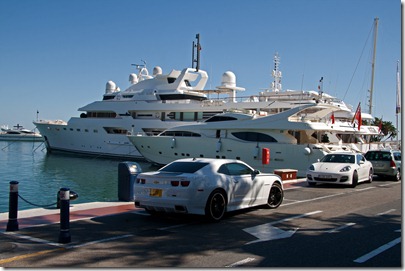Eight former attorneys general, two of whom have been chairman of AIB, have lobbied that the two referendums that will take place on Thursday will seriously weaken the right of individuals to protect their reputation and that their right to fair procedure to be decided by an independent judiciary will be impaired. While they support the principle of a reduction in judicial remuneration they contend that there is insufficient protection for the independence of the Irish judiciary. But there wasn’t a whimper out of them when judicial pay was escalating to obscene and unsustainable levels.
This is a blatant and audacious stunt to feather the vested interest of the two legal professions. Justice Minister, Alan Shatter has described it ‘as nonsense’. How right he is. Nobody who observes the rule of law has anything to be remotely concerned about. Polling trends suggest both referendums will pass.
Many voters will be pleased to end the gravy train that tribunals of inquiry proved to be to lawyers – one of whom had the thick, brazen neck to look for a further €30,000 on top of cumulative payments ranging from €7 million to €9.5 million.
The passage of the referendum on Oireachtas Inquiries will ensure no recurrence of greedy parasites’ milking that State in the manner seen in the last Oireachtas.
Oireachtas Inquiries
One referendum proposes to give the Houses of the Oireachtas (the Dáil and Seanad) express power to conduct inquiries into matters of general public importance and, in doing so, to make findings of fact about any person’s conduct. If the proposed amendment is approved, the consequences would be that:
The Dáil and the Seanad, either separately or together, would have the power power to inquire into the conduct of any person, whether a member of either House or not, and the power to make relevant findings about that person’s conduct. The conduct of any person, whether a public servant or not, could be the subject of inquiry and findings about that conduct could be made if relevant to the matter to which the inquiry relates.
When conducting any such inquiry, either or both Houses would have both the power to inquire into the conduct of any person, whether a member of either House or not, and the power to make relevant findings about that person’s conduct. The conduct of any person, whether a public servant or not, could be the subject of inquiry and findings about that conduct could be made if relevant to the matter to which the inquiry relates.
The Dáil and/or the Seanad would have the power to determine the appropriate balance between the rights of people involved in any such inquiry and the requirements of the public interest for the purpose of ensuring an effective inquiry. When doing so, they would be obliged to have “due regard” to the principles of fair procedures. These principles have been established by the Constitution and by the Courts over many years.
Judicial Pay
At present, judges pay tax and the Universal Social Charge in the same way as everyone else. Judges are not legally obliged to pay the “Public Service Pension Levy” although they may voluntarily choose to make an equivalent contribution.
The proposal would also allow for a law to be passed making judges subject to the Public Service Pension Levy and to any other future similar charge, or charges
Proposed amendment – judges’ pay
At present, Article 35.5 of the Constitution states:
“The remuneration of a judge shall not be reduced during his continuance in office.”. This is intended to ensure that an individual judge is neither scapegoated or blackguarded by the Government.
It is proposed to replace this with the following wording:
5 1° The remuneration of judges shall not be reduced during their continuance in office save in accordance with this section.
2° The remuneration of judges is subject to the imposition of taxes, levies or other charges that are imposed by law on persons generally or persons belonging to a particular class.
3° Where, before or after the enactment of this section, reductions have been or are made by law to the remuneration of persons belonging to classes of persons whose remuneration is paid out of public money and such law states that those reductions are in the public interest, provision may also be made by law to make proportionate reductions to the remuneration of judges.
The judiciary is one of three branches of government in Ireland: the Oireachtas, the President and the judiciary. Judges are mandated to make their decisions independently and without interference from the Government or the legislature – who are responsible for the pay of judges.








